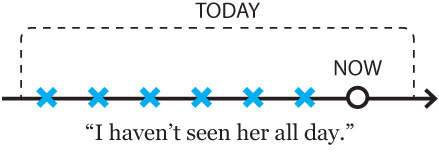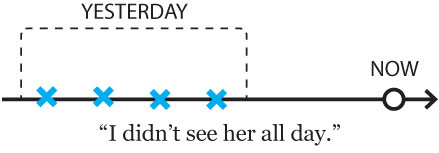Perfect Aspect
In the mind of an English speaker, there's a difference between talking about something that happened in the past and talking about something that has happened. The difference is whether there's an effect on the speaker right now:

Here's how English speakers imagine the simple past tense:

It's just a fact - you ate at some time in the past. It doesn't have any connection to how you feel right now. But if you say "I've eaten", that expresses the idea that you ate something, and now you probably feel full. You probably don't want to eat another meal. The speaker is not only talking about the past action, but also about the present effect of that action:

The name for this way of speaking and understanding sentences is the "perfect aspect". Perfect aspect is used in a few different kinds of situations:
1. Perfect Aspect for experiences
Use "I've ___ed" when you're talking about an experience that you have. The event happened in the past, but the experience of it is still "with" you in some way. For example, you might say "I've seen the Rolling Stones in concert" or "He's been to L.A. twice":

If the experience wasn't meaningful, or it's not important for the conversation right now, you use the simple past tense instead:

2. Perfect Aspect for things that haven't finished
When you're talking about something that started some time in the past and is still happening now, you can use "have ___ed". If it's already finished, use the simple past:


When you say the time period for something, and that time period hasn't finished yet, you use "have ___ed" or "haven't ___ed":

When the time has already finished, use the simple past tense:

3. Perfect Aspect for expectations
When you expect someone to do something, you ask "Have you ___ed?". For example, if someone gives you the message that your brother called you, they might want to check later to see if you called your brother back. If the person wanted you to call back, and expected it, she'll say "Have you called him back?" If she doesn't care, she'll ask "Did you call him back?":

Notes
- You should definitely look at this list of PhraseMix lessons that use perfect aspect.
- You can't use "have ___ed" plus a time phrase like "yesterday", "sometimes", or "last night".
- You can use it with "since (a time)" and "for (a length of time)"
- In this description, I wrote the form of the perfect aspect as "have ___ed" but there are a lot of other forms like "have eaten", "have seen", "have drank", and so on.
- There are a lot of situations in which you can use either perfect aspect or simple past tense. Which one you choose simply depends on what you want to emphasize.



